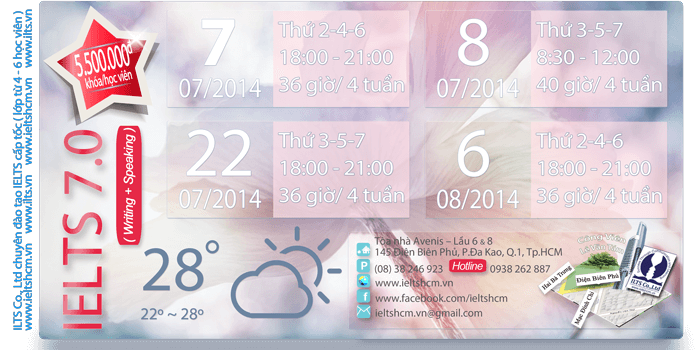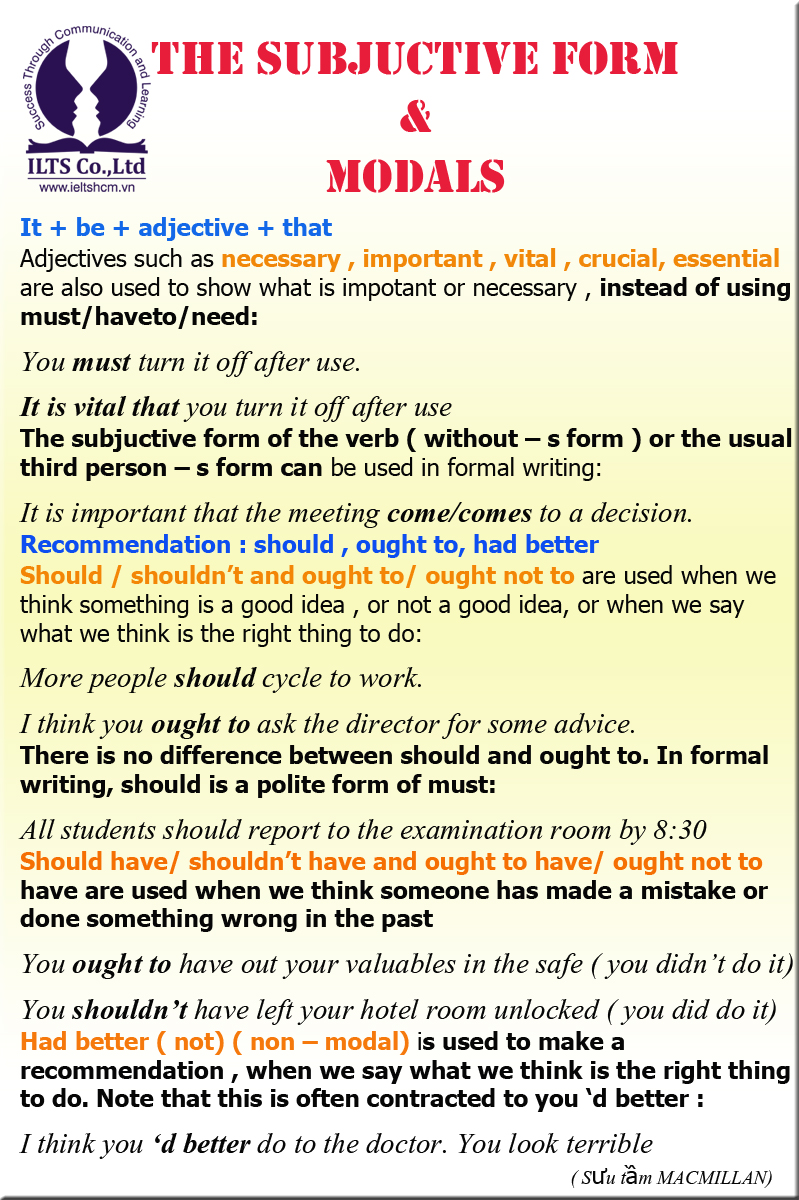GRAMMAR SUBJUCTIVE AND MODALS
GRAMMAR SUBJUCTIVE AND MODALS
[/su_slider]It + be + adjective + that
Adjectives such as necessary , important , vital , crucial, essential are also used to show what is impotant or necessary , instead of using must/haveto/need:
You must turn it ff after use.
It is vital that you turn it off after use
The subjuctive form of the verb ( without – s form ) or the usual third person – s form can be used in formal writing:
It is important that the meeting come/comes to a decision.
Recommendation : should , ought to, had better
Should / shouldn’t and ought to/ ought not to are used when we think something is a good idea , or not a good idea, or when we say what we think is the right thing to do:
More people should cycle to work.
They shouldn’t drive everywhere.
I think you ought to ask the director for some advice.
There is no difference between should and ought to. In formal writing, shold is a polite form of must:
All students should report to the examination room by 8:30
Should have/ shouldn’t have and ought to have/ ought not to have are used when we think someone has made a mistake or done something wrong in the past
You ought to have out your valuables in the safe ( you didn’t do it)
You shouldn’t have left your hotel room unlocked ( you did do it)
Had better ( not) ( non – modal) is used to make a recommendation , when we say what we think is the right thing to do. Note that this is often contracted to you ‘d better :
I think you ‘d better do to the doctor. You look terrible
( Sưu tầm MACMILLAN)







